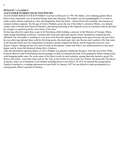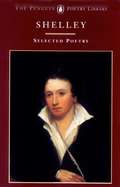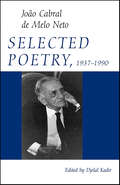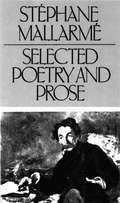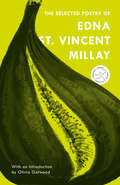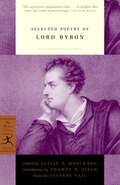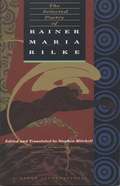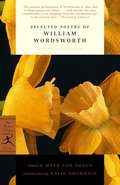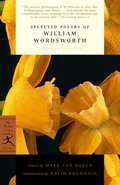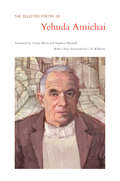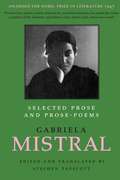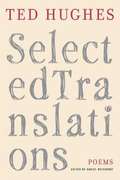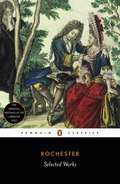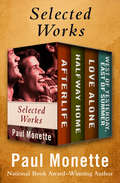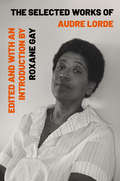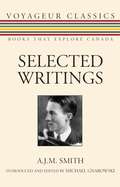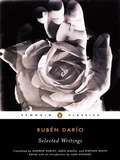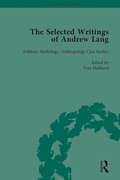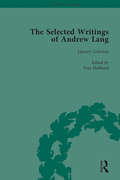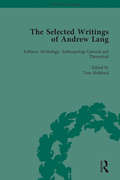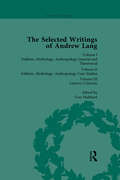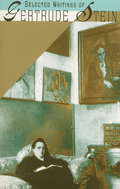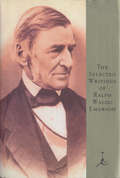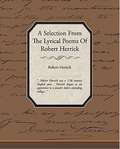- Table View
- List View
Selected Poetry
by Alexander Pushkin Antony WoodPushkin's The Bronze Horseman, based on the statue of Peter the Great in Saint Petersburg and the great flood of 1824, is widely considered to be his most successful narrative poem, the second most famous poem in Russian literature after his Eugene Onegin, and notoriously difficult to translate. One of the most influential works in Russian literature, it will appeal to readers of Dostoyevsky's The Double, Andrei Biely's Petersburg, Anna Akhmatova's poetry, and the works of Nikolai Gogol. <p><p>This new translation, described by Robert Chandler as "truly wonderfull," is accompanied here by Pushkin's greatest shorter verses. They range from lyric poetry to narrative verse based on traditional Russian stories of enchanted tsars and magical fish. Together, they show the dazzling range and achievement of Russia's greatest poet.
Selected Poetry: Poems
by Isabel Quigly Percy ShelleySHELLEY'S WORK HAS BEEN CRITICIZED FOR ITS DIDACTICISM AND UNDISCIPLINED EMOTIONALISM. BUT ESSENTIALLY HE WAS A POET OF IDEAS AND IN HIS SEARCH FOR TRUTH AND ORIGINAL HUMAN PERFECTION, SHELLEY WAS INSPIRED AS MUCH BY THE GREEK POETS AND PHILOSOPHERS, PARTICULARLY PLATO, AS BY THE RADICALISM OF HIS OWN AGE. ABOVE ALL, HIS GREAT GIFT WAS HIS LYRICISM AND HIS VERSE COMES AS NEAR TO MUSIC AS POETRY CAN.
Selected Poetry, 1937–1990 (Wesleyan Poetry Series)
by João MeloThis bilingual anthology brings together a representative selection from more than a half century of this distinguished Brazilian poet's lifetime work. Along with previously translated poems are many others in English for the first time. The remarkable group of poets and translators includes Elizabeth Bishop, Alastair Reid, Galway Kinnell, Louis Simpson, and W. S. Merwin.
Selected Poetry and Prose
by Stephane MallarmeThe essential work of Mallarmé, collected in a bilingual French and English edition. Selected Poetry and Prose of Stéphane Mallarmé presents what can be considered the essential work of the renowned "father of the Symbolists." Mallarmé's major elegies, sonnets, and other verse, including excerpts from the dialogue "Hériodiade," are all assembled here with the French and English texts en face. Also included (not bilingually) are the visual poem "Dice Thrown Never Will Annul Chance" and the drama "Igitur," as well as letters, essays, and reviews. Although his primary concern was with poetry, the aesthetics of Stéphane Mallarmé (1842-98) has touched all the arts. During the last twenty years of his life, his Paris apartment was a major literary gathering place. Every Tuesday evening, standing beneath the portrait of himself by his friend Edouard Manet, the poet addressed reverent gatherings which included at various times Paul Valery and André Gide, among many others. The American painter James Whistler was influenced by these "Mardis," and one of the best-known poems in the present collection, "The Afternoon of a Faun," inspired Claude Debussy's famous musical composition. In translation, the subtle and varied shades of Mallarmé's oeuvre may best be rendered by diverse hands. Editor Mary Ann Caws, the author of books on René Char, Robert Desnos, and various aspects of modern French writing, has brought together the work of fourteen translators, spanning a century, from the Symbolists and the Bloomsbury group (George Moore and Roger Fry) to Cid Corman, Brian Coffey, and other contemporary poets and writers.
The Selected Poetry of Edna St. Vincent Millay (Modern Library Torchbearers)
by Edna St. Vincent Millay Nancy Milford"These are the poems that made Edna St. Vincent Millay's reputation when she was young. Saucy, insolent, flip, and defiant, her little verses sting the page," writes Nancy Milford in the Introduction to The Selected Poetry of Edna St. Vincent Millay. As one of America's most beloved poets-and the winner of the Pulitzer Prize in 1923-Millay defined a generation with her intoxicating voice of liberation. Most remembered for her passionate, lyrical voice and mastery of the sonnet form, Millay explores love, death, and nature in her poetry while deftly employing allusions to the classical and the romantic. In 1917, at the age of twenty, she burst onto the New York literary scene with the publication of her first book of poetry, Renascence and Other Poems, which is included in this volume.Edited by Millay biographer Nancy Milford, The Selected Poetry of Edna St. Vincent Millay also includes the collections A Few Figs from Thistles and Second April, as well as "The Ballad of the Harp-Weaver" and eight of Millay's sonnets from the early twenties.
The Selected Poetry of Firag Gorakhpuri
by Noorul Hasan Firag GorakhpuriSelected poems of Firaq Gorakhpuri, 1896-1982, translated from Urdu into English.
Selected Poetry of Lord Byron (Modern Library Classics)
by Leslie A. MarchandPoet, celebrity, and revolutionary, Lord (George Gordon) Byron was one of the most influential and controversial figures of the first half of the nineteenth century, his distinctive, deeply felt work comprising one of the enduring high points of Romantic literature. From “Manfred,” with its evocation of the figure that came to be called the “Byronic hero,” to the melancholy “Childe Harold,” to the satirical masterpiece “Don Juan” (presented here in judiciously selected form), this Modern Library Paperback Classic includes all of the essential Byron.
The Selected Poetry of Rainer Maria Rilke
by Rainer Maria Rilke Stephen Mitchell Robert Hass"This miracle of a book, perhaps the most beautiful group of poetic translations this century has ever produced," (Chicago Tribune) should stand as the definitive English language version.From the Trade Paperback edition.
Selected Poetry of William Wordsworth: Selected And Prepared For Use In Schools And Classes, From Hudson's Text-book Of Poetry (Modern Library Classics)
by Mark Van Doren William Wordsworth David BromwichSelected Poetry of William Wordsworth represents Wordsworth's prolific output, from the poems first published in Lyrical Ballads in 1798 that changed the face of English poetry to the late "Yarrow Revisited." Wordsworth's poetry is celebrated for its deep feeling, its use of ordinary speech, the love of nature it expresses, and its representation of commonplace things and events. As Matthew Arnold notes, "[Wordsworth's poetry] is great because of the extraordinary power with which [he] feels the joy offered to us in nature, the joy offered to us in the simple elementary affections and duties."From the Trade Paperback edition.
Selected Poetry of William Wordsworth
by William Wordsworth Mark Van DorenSelected Poetry of William Wordsworth represents Wordsworth's prolific output, from the poems first published in Lyrical Ballads in 1798 that changed the face of English poetry to the later works. Wordsworth's poetry is celebrated for its deep feeling, its use of ordinary speech, the love of nature it expresses, and its representation of commonplace things and events. As Matthew Arnold notes,[Wordsworth's poetry] is great because of the extraordinary power with which [he] feels the joy offered to us in nature, the joy offered to us in the simple elementary affections and duties.
The Selected Poetry of Yehuda Amichai
by C. K. Williams Chana Bloch Yehuda Amichai Stephen MitchellYehuda Amichai (1924-2000) was Israel's most popular poet, as well as a literary figure of international reputation. In this collection, renowned translators Chana Bloch and Stephen Mitchell have selected Amichai's most beloved poems, including forty poems from his later work. A new foreword by C.K. Williams, written especially for this edition, addresses Amichai's enduring legacy and sets his poetry in the context of the new millennium.
Selected Prose and Prose-Poems
by Stephen TapscottThe first Latin American to receive a Nobel Prize for Literature, the Chilean writer Gabriela Mistral (1889-1957) is often characterized as a healing, maternal voice who spoke on behalf of women, indigenous peoples, the disenfranchised, children, and the rural poor. She is that political poet and more: a poet of philosophical meditation, self-consciousness, and daring. This is a book full of surprises and paradoxes. The complexity and structural boldness of these prose-poems, especially the female-erotic prose pieces of her first book, make them an important moment in the history of literary modernism in a tradition that runs from Baudelaire, the North American moderns, and the South American postmodernistas. It's a book that will be eye-opening and informative to the general reader as well as to students of gender studies, cultural studies, literary history, and poetry.
Selected Translations
by Ted HughesThe late, great poet's version of poems ancient and modern. Known (with Philip Larkin) as the most distinctly English of the postwar British poets, Ted Hughes was a boundlessly curious reader and translator of poetry from other languages. This generous selection of his translations at once rounds out the publication of his major work and gives us a fresh view of his poetic achievement. In 1965, Hughes, already famous in Britain, founded the journal Modern Poetry in Translation, and a number of the translations here are of poems by his contemporaries: the Israeli Yehuda Amichai, the Hungarian János Pilinszky, and the Serbian Vasko Popa. At the same time, Hughes was forever in search of older precursors, whether Homer, Lorenzo de' Medici, or the authors of Sir Gawain and the Green Knight and The Tibetan Book of the Dead, and his translations of them deepen our sense of his interest in pagan ritual and esoteric religion. These two strains of his work as translator were brought together late in his career, when, with supple and radiant versions of Ovid's Metamorphoses, Aeschylus' Oresteia, and Euripides' Alcestis--all amply represented here--he established himself as one of the foremost interpreters of the classics in English. Selected Translations is a vital addition to the Hughes oeuvre.
Selected Works
by Earl of RochesterThe brightest star at the court of King Charles II, John Wilmot, Earl of Rochester (1647-80), lived a life of reckless debauchery and sexual adventuring that led to his death at the age of thirty-three - described by Samuel Johnson as having 'blazed out his youth and health in lavish voluptuousness'. Rochester was also one of the wittiest and most complex poets of the seventeenth century, writing comic verse, scurrilous satires and highly explicit erotica - from the bawdy self-portrait in 'The Maimed Debauchee' and the tender passion of 'Absent from thee I languish still' to the comic world-weariness of 'Upon Nothing' and 'A Satyr against Mankind', which mocks human follies. With endless literary disguises, rhymes and alliteration, humour and humanity, Rochester's poems hold up a mirror to the extravagances and absurdities of his age.
Selected Works: Afterlife; Halfway Home; Love Alone; and West of Yesterday, East of Summer
by Paul MonetteTwo novels and two collections of poetry, all powerful reflections on the AIDS experience, from the National Book Award–winning author of Becoming a Man. Afterlife: Three men bond after their lovers die of AIDS, all within a week of one another in the same Los Angeles hospital. Each of the men react differently to the situation he&’s in, but no matter the path each takes, they are all searching for a way to live and love again. Halfway Home: After being diagnosed with AIDS, Tom moves to a California beach house to live out the rest of his life in peace. But the unexpected reappearance of his troubled brother quickly changes everything in this novel about anger, reconciliation, love, and danger. Love Alone: Following his partner Roger Horwitz&’s death from AIDS in 1986, Paul Monette threw himself into these elegies. Writing them, he says, &“quite literally kept me alive.&” Both beautifully written and deeply affecting, every poem is full of resentment, sorrow, tenderness, and a palpable sense of grief—but also love. West of Yesterday, East of Summer: This stunning career-spanning collection includes Monette&’s early work as well as the beautiful and wrenching poems borne out of immense loss. Written with characteristic wit, these poems deftly traverse humor, rage, love, and mourning.
The Selected Works of Audre Lorde
by Audre LordeA definitive selection of Audre Lorde’s "intelligent, fierce, powerful, sensual, provocative, indelible" (Roxane Gay) prose and poetry, for a new generation of readers. Self-described "black, lesbian, mother, warrior, poet" Audre Lorde is an unforgettable voice in twentieth-century literature, and one of the first to center the experiences of black, queer women. This essential reader showcases her indelible contributions to intersectional feminism, queer theory, and critical race studies in twelve landmark essays and more than sixty poems—selected and introduced by one of our most powerful contemporary voices on race and gender, Roxane Gay. Among the essays included here are: "The Transformation of Silence into Language and Action" "The Master’s Tools Will Never Dismantle the Master’s House" "I Am Your Sister" Excerpts from the American Book Award–winning A Burst of Light The poems are drawn from Lorde’s nine volumes, including The Black Unicorn and National Book Award finalist From a Land Where Other People Live. Among them are: "Martha" "A Litany for Survival" "Sister Outsider" "Making Love to Concrete"
Selected Writings
by A.J.M. Smith Michael GnarowskiArthur James Marshall Smith prize-winning poet, essayist, influential anthologist, and critic died in 1980. His last book, The Classic Shade: Selected Poems, on which Selected Writings is based, stands as his final intention in the world of literature.To this long out of print book the editor has added original material by Smith in which he defined and advanced modernism in Canadian writing. This edition also includes annotation, an extended introduction, and a bibliography.
Selected Writings (Dario, Ruben)
by Stephen White Ilan Stavans Andrew Hurley Greg Simon Ruben DarioBorn in Nicaragua, Rubén Darío is known as the consummate leader of the Modernista movement, an esthetic trend that swept the Americas from Mexico to Argentina at the end of the nineteenth century. Seeking a language and a style that would distinguish the newly emergent nations from the old imperial power of Spain, Darío's writing offered a refreshingly new vision of the world--an artistic sensibility at once cosmopolitan and connected to the rhythms of nature. The first part of this collection presents Darío's most significant poems in a bilingual format and organized thematically in the way Darío himself envisioned them. The second part is devoted to Darío's prose, including short stories, fables, profiles, travel writing, reportage, opinion pieces, and letters. A sweeping biographical introduction by distinguished critic Ilan Stavans places Darío in historical and artistic context, not only in Latin America but in world literature. First time in Penguin Classics Includes suggestions for further reading, a bibliography, and a glossary
The Selected Writings of Andrew Lang: Volume II: Folklore, Mythology, Anthropology; Case Studies (The Pickering Masters)
by Tom HubbardA novelist, poet, literary critic and anthropologist, Andrew Lang is best known for his publications on folklore, mythology and religion; many have grown up with the ‘colour’ Fairy Books which he compiled between 1889 and 1910. This three volume set presents a selection of his work in these areas. As a companion to the first volume, the second is comprised of various case studies made by Lang, ranging from ‘The Aryan Races of Peru’ and ‘The Folk-lore of France’ to ‘Irish Fairies’ and ‘The Ballads, Scottish and English’. Collectively, the General Introduction to the set and the Introductions to the individual volumes offer a thorough overview of Lang’s work in an astonishing variety of fields, including his translation work on Homer and his contributions to historiography (particularly Scottish). Headnotes to the individual items are of varying length and provide more detail on specific topics, and explanatory notes supply unique intellectual comment rather than merely factual information.
The Selected Writings of Andrew Lang: Volume III: Literary Criticism (Routledge Historical Resources)
by Tom HubbardA novelist, poet, literary critic and anthropologist, Andrew Lang is best known for his publications on folklore, mythology and religion; many have grown up with the ‘colour’ Fairy Books which he compiled between 1889 and 1910. This three volume set presents a selection of his work in these areas. The third volume arranges his literary criticism, first by geo-cultural context and then chronologically. It begins with Lang’s views on the nature and purpose of fiction, then presents samples of his work on some of the most important authors in the respective canons of French, American, Scottish and English literature including Victor Hugo, Edgar Allan Poe, Robert Burns and Charles Dickens among many others, mainly of the nineteenth century. Collectively, the General Introduction to the set and the Introductions to the individual volumes offer a thorough overview of Lang’s work in an astonishing variety of fields, including his translation work on Homer and his contributions to historiography (particularly Scottish). The Introduction to Volume III sets Lang within the context of the literature of his times, comparing and contrasting him with significant contemporaries. Headnotes to the individual items are of varying length and provide more detail on specific topics, and explanatory notes supply unique intellectual comment rather than merely factual information.
The Selected Writings of Andrew Lang: Volume I: Folklore, Mythology, Anthropology; General and Theoretical (The Pickering Masters)
by Tom HubbardA novelist, poet, literary critic and anthropologist, Andrew Lang is best known for his publications on folklore, mythology and religion; many have grown up with the ‘colour’ Fairy Books which he compiled between 1889 and 1910. This three volume set presents a selection of his work in these areas. The first volume covers the general and theoretical aspects of Lang’s work on folklore, mythology and anthropology along with the tools and concepts which he used in his often combative contributions to these inter-related disciplines. Collectively, the General Introduction to the set and the Introductions to the individual volumes offer a thorough overview of Lang’s work in an astonishing variety of fields, including his translation work on Homer and his contributions to historiography (particularly Scottish). Headnotes to the individual items are of varying length and provide more detail on specific topics, and explanatory notes supply unique intellectual comment rather than merely factual information.
The Selected Writings of Andrew Lang (The Pickering Masters)
by Tom HubbardA novelist, poet, literary critic and anthropologist, Andrew Lang is best known for his publications on folklore, mythology and religion; many have grown up with the ‘colour’ Fairy Books which he compiled between 1889 and 1910. This three volume set presents a selection of his work in these areas. The first volume covers the general and theoretical aspects of Lang’s work on folklore, mythology and anthropology along with the tools and concepts which he used in his often combative contributions to these inter-related disciplines. As a companion to the first volume, the second is comprised of various case studies made by Lang, ranging from ‘The Aryan Races of Peru’ and ‘The Folk-lore of France’ to ‘Irish Fairies’ and ‘The Ballads, Scottish and English’. The third volume arranges his literary criticism, first by geo-cultural context and then chronologically. It begins with Lang’s views on the nature and purpose of fiction, then presents samples of his work on some of the most important authors in the respective canons of French, American, Scottish and English literature including Victor Hugo, Edgar Allan Poe, Robert Burns and Charles Dickens among many others, mainly of the nineteenth century. Collectively, the General Introduction to the set and the Introductions to the individual volumes offer a thorough overview of Lang’s work in an astonishing variety of fields, including his translation work on Homer and his contributions to historiography (particularly Scottish). The Introduction to Volume III sets Lang within the context of the literature of his times, comparing and contrasting him with significant contemporaries. Headnotes to the individual items are of varying length and provide more detail on specific topics, and explanatory notes supply unique intellectual comment rather than merely factual information.
Selected Writings of Gertrude Stein
by Gertrude SteinThis collection, a retrospective exhibit of the work of a woman who created a unique place for herself in the world of letters, contains a sample of practically every period and every manner in Gertrude Stein's career. It includes The Autobiography of Alice B. Toklas in its entirety; selected passages from The Making of Americans; "Melanctha" from Three Lives; portraits of the painters Cezanne, Matisse, and Picasso; Tender Buttons; the opera Four Saints in Three Acts; and poem, plays, lectures, articles, sketches, and a generous portion of her famous book on the Occupation of France, Wars I Have Seen.
Selected Writings of Ralph Waldo Emerson
by Ralph Waldo EmersonFrom one of the greatest figures of 19th-century America. . . This new edition offers a broad view of the author's finest work, featuring his critical essays, poems, and letters, plus a considerable amount of material from the Journals, including an entry discovered in 1964 in the Library of Congress.
A Selection from the Lyrical Poems of Robert Herrick
by Robert HerrickRobert Herrick was a 17th century English poet. Herrick began as an apprentice to a jeweler before attending college. In 1627 he took his orders and became chaplain to the Duke of Buckingham. He then became a vicar in Devon where he lived for 31 years writing some of his best poetry. When the English Civil War broke out he lost his position, since he refused to pledge to the Solemn League and Covenant. He returned to London living off the charity of his friends and spent his time preparing his lyric poems for publication. When Charles became king Herrick returned to his post. His poetry themes were English country life, village customs, complimentary poems to various ladies and his friends, themes taken from classical writings and Christian faith.
